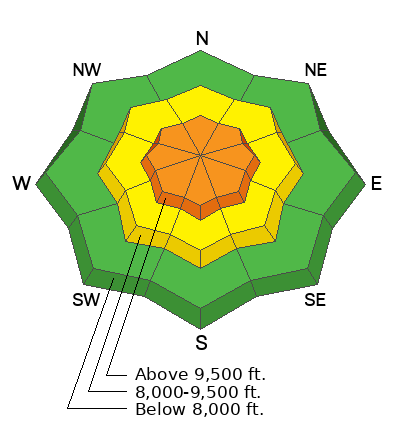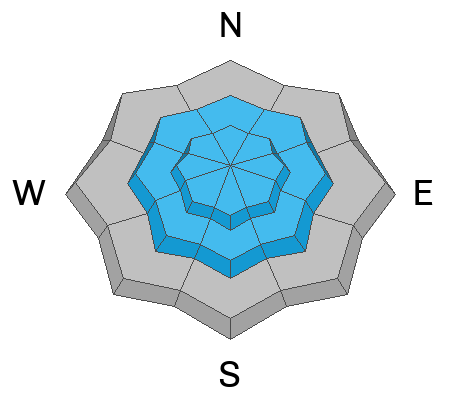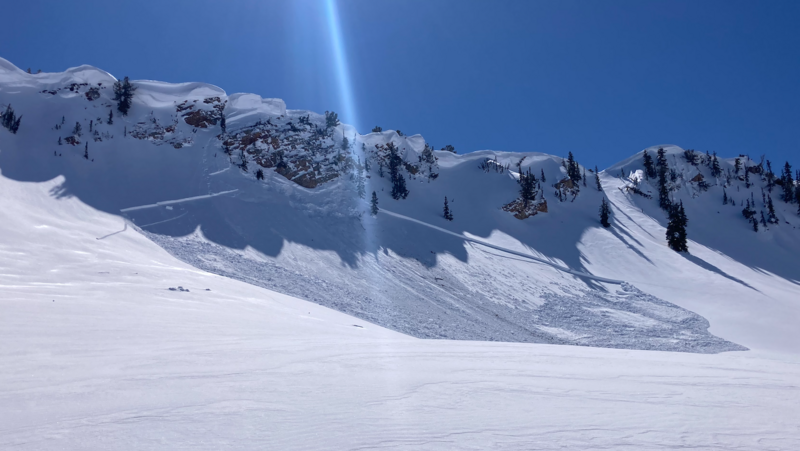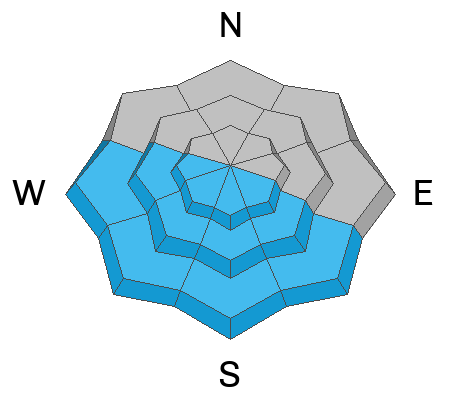Forecast for the Provo Area Mountains

Issued by Greg Gagne on
Friday morning, March 17, 2023
Friday morning, March 17, 2023
The avalanche danger is CONSIDERABLE at the upper elevations and MODERATE at the mid elevations where you can trigger avalanches failing in dense slabs of recent storm snow and wind-drifted snow. These wind drifts may allow you to get well onto a slope before fracturing.
Today's strong sunshine will increase the risk of wet, loose avalanches on steep slopes facing southeast through west.
Roof-a-lanches in our mountain communities are a hazard this season. Do not let children play in the snow underneath steep roofs loaded with snow.

Low
Moderate
Considerable
High
Extreme
Learn how to read the forecast here











